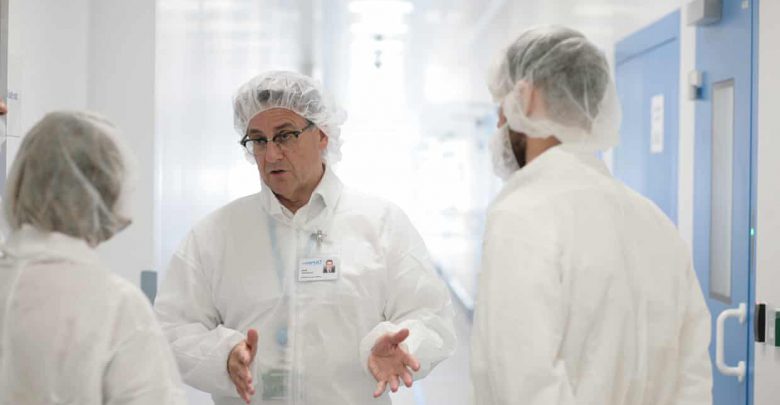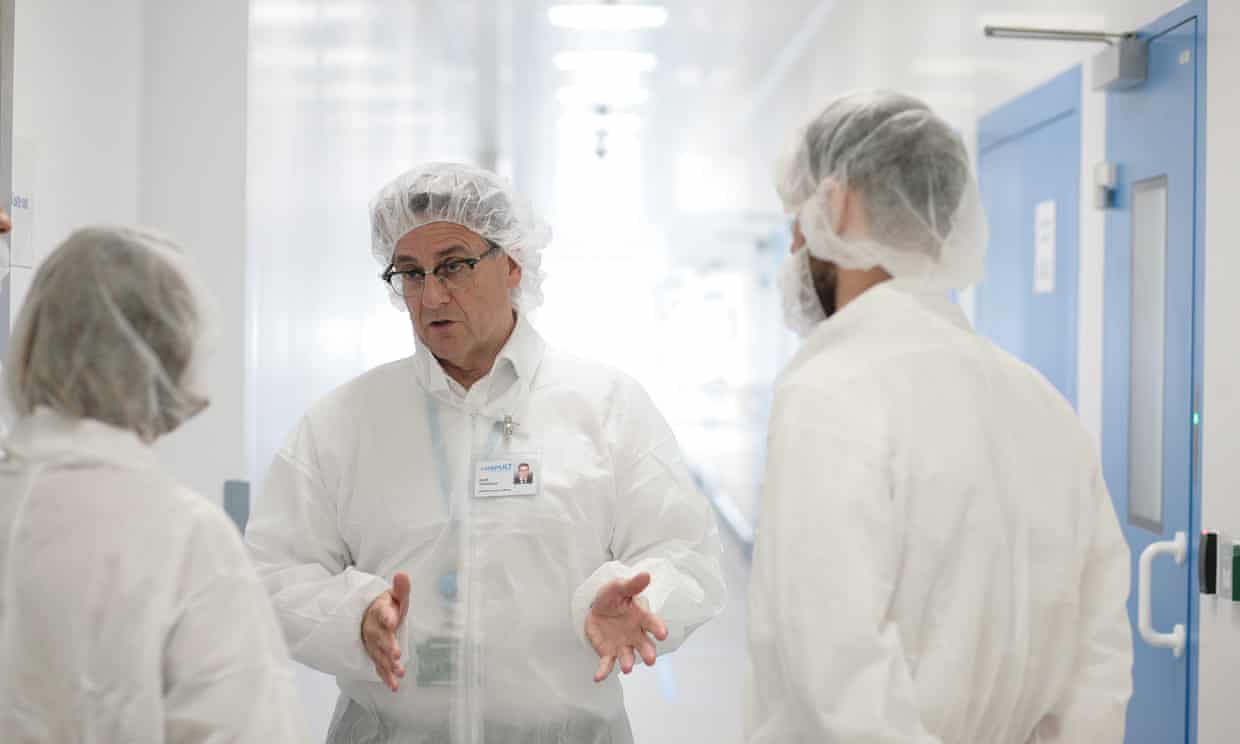Technology
‘Absolute revolution’: UK biotech firms thrive despite Brexit threat


Biotech is among the most promising components of the British drug industry, not least in accordance with the investors who continue to pump billions on the sector regardless of the odd looming shadow of Brexit. In the first eight months of 2018 alone it received nearly 1.6bn, compared to 1.2bn for your entirety of 2017.
An unassuming building in a very science park next to the Hertfordshire area of Stevenage is hosting four biotech businesses that dream to achieve a major breakthrough for any field C and go some way to justifying that faith from investors.
The premise of biotech is radical: it harnesses living organisms to deal with diseases. These companies C Adaptimmune, Cell Medica, Autolus and Freeline Therapeutics C are operating on so-called living medicines, who make use of human cells and genes, to manage conditions which range from hard-to-treat cancers to haemophilia and eye diseases.
They are based at the government-funded cell and gene manufacturing centre, which opened in May and it is the main such collaborative centre on the globe. Cell and gene therapies can deal with genetic defects and reengineer patients’ cells to learn and attack tumours together with other diseases.
There tend to be more than 60 biotech firms specialising in cell and gene therapy in great britan, turning it into the second-biggest cluster on this planet after the US.
In Stevenage, Adaptimmune, Cell Medica and Autolus all concentrate on cancer while Freeline is taking care of therapies for bleeding disorders. Another UK firm, London-based Nightstar Therapeutics, includes a gene therapy in late-stage studies to relieve an unusual retinal disorder which leads to blindness.
Keith Thompson, the CEO of Cell and Gene Therapy Catapult (CGT), who put in place the Stevenage centre, believes that turning cells and genes into living medicines can provide cures as opposed to just treating symptoms C and could be exported by Britain world wide. He describes it as “an absolute revolution”.
He is optimistic regardless of the odd looming threat of Brexit. “We’re seeking to accept the UK science in to a new industry and not just allow it to bleed offshore.”
Simon Pegg, the director at Adaptimmune, that’s developing T-cell therapies for cancer, says the re-engineered cells start working instantly and cancer patients are able to see benefits inside of a week. In T-cell therapy, white blood cells called T-cells are extracted from a client. These are refrigerated and shipped being reprogrammed to combat cancer cells, after which you can frozen under liquid nitrogen before being transported returning to the clinical site for infusion in to the patient.
However, there are challenges. Living therapies are pricey to help make, producing high price, and in contrast to traditional drugs may not be held in blister packs inside a pharmacy.
Along online websites, CGT is making an effort to scale within the new therapies so they really become routine treatments in great britain. The Stevenage centre will swiftly cover the cost of 6,000 patient doses a year.
Three new government-funded treatment centres, where patients get cell and gene therapies, are inside the works C inside the north, Manchester, and the Midlands and Wales.
There is really a string of positive news recently. In October, a stem cell gene therapy for severe inherited blood disorders that is certainly being designed by London-based Orchard Therapeutics, a spinout from University College London, was presented priority status by industry regulator the eu Medicines Agency.
In September, NHS England claimed it makes Novartis’s gene therapy Kymriah readily available for children and younger people by using a kind of leukaemia. Simon Stevens, the key executive of NHS England, described the CAR-T therapy as being a “true gamechanger”. It functions by genetically engineering the patient’s own immune system’s “killer” T-cells to learn and destroy cancer cells.
In 2012, six-year-old Emily Whitehead, who had previously been seriously ill from an aggressive style of leukaemia, was crowned first child being helped by the treatment. The girl with still cancer-free.
The industry includes a great to go C a little dozen cell and gene therapies are saved to the marketplace in Europe, including Strimvelis, a gene therapy designed by GlaxoSmithKline for that severe immune deficiency often called “bubble boy” disease. However, there could be more soon, with 1,003 clinical trials of latest therapies under way worldwide, one half of them for cancer.




